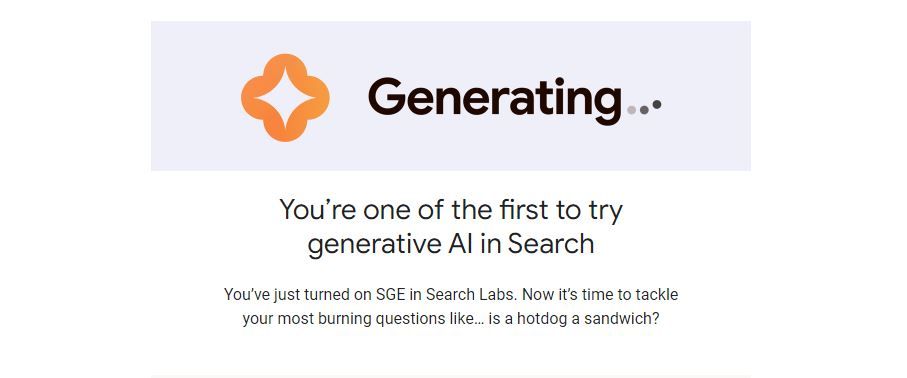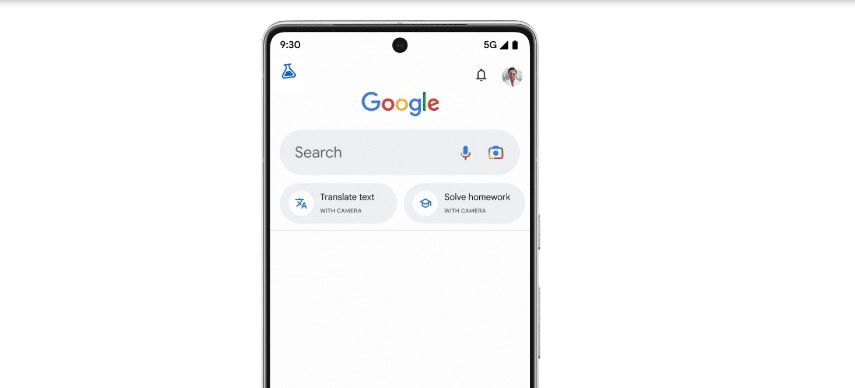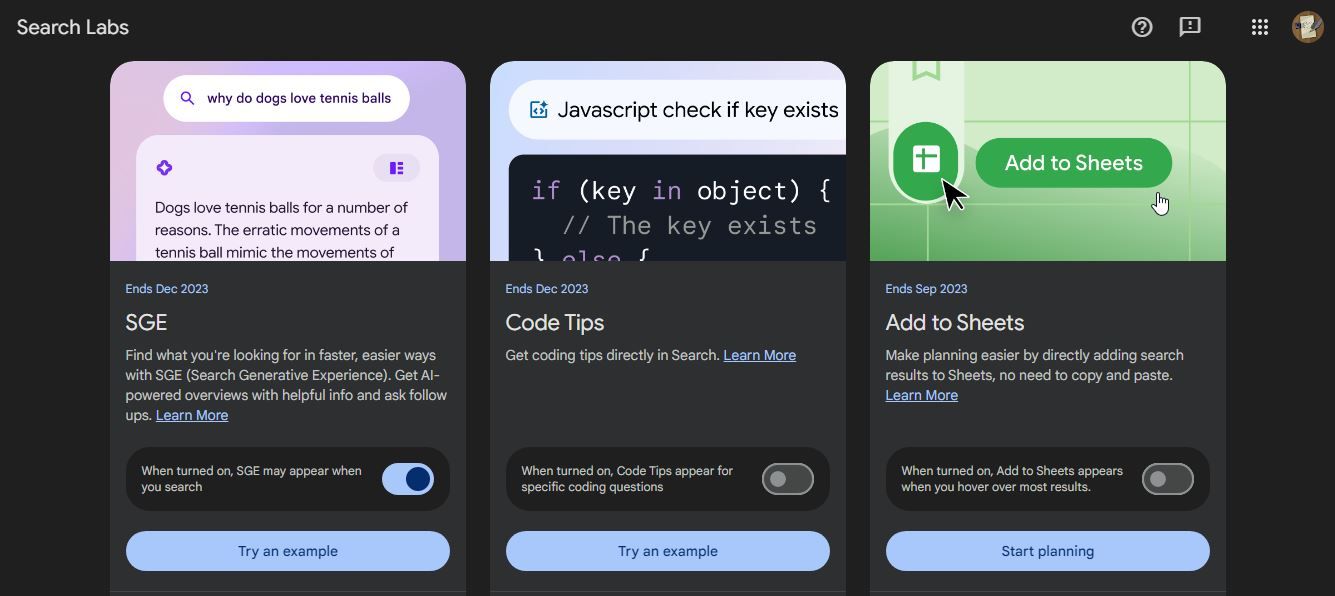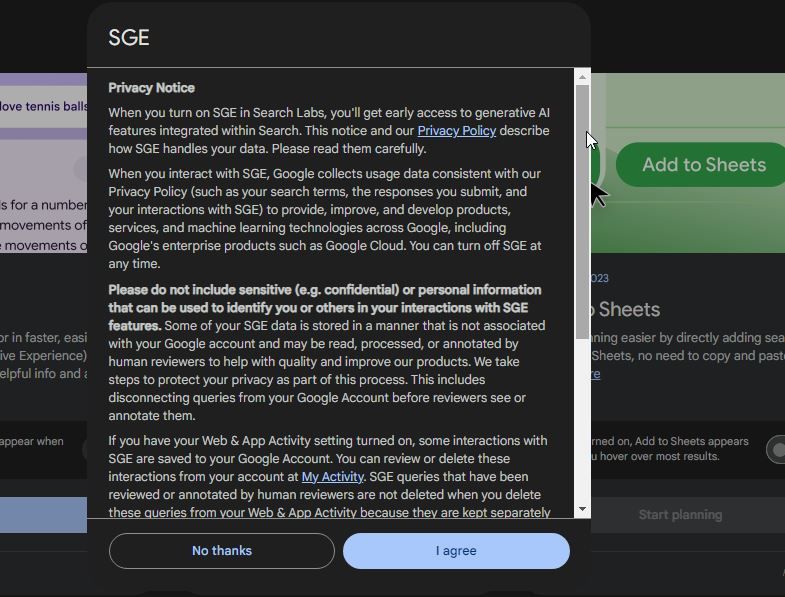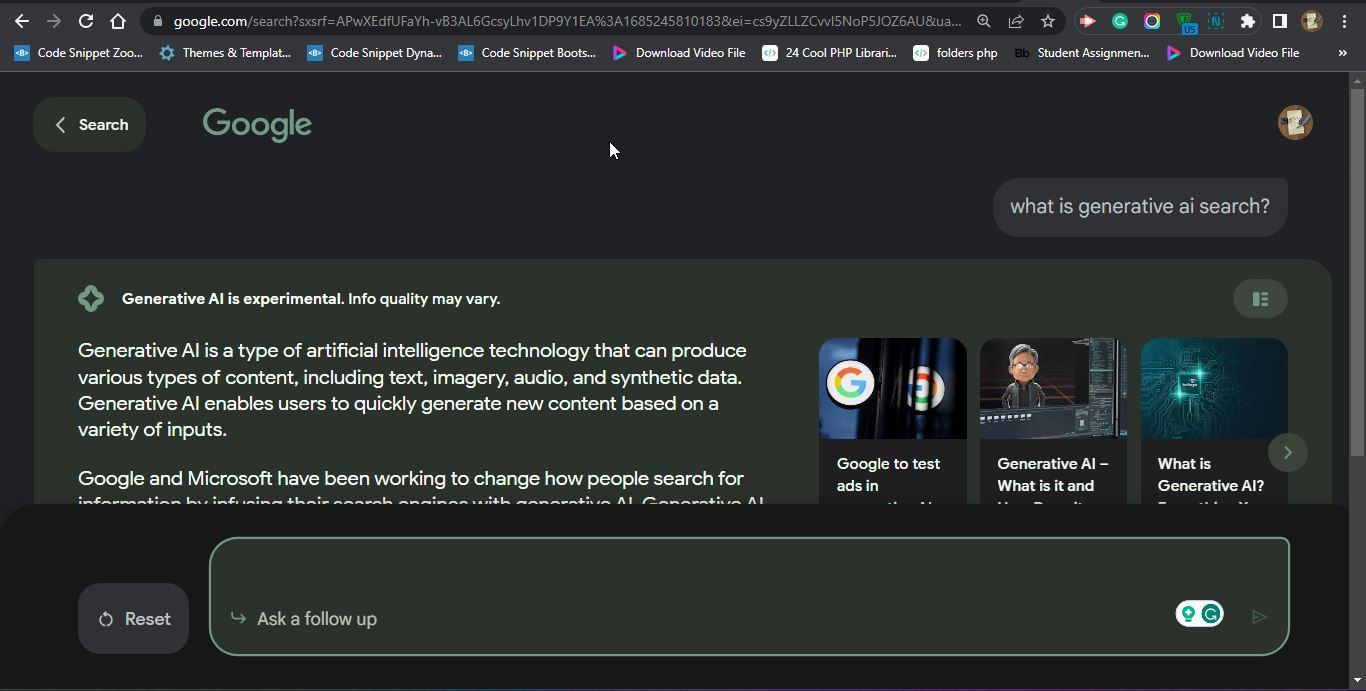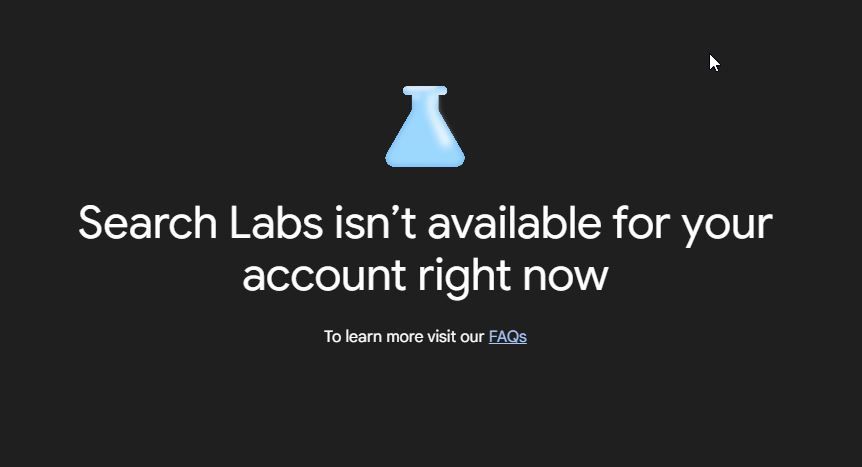At Google's I/O 2023 event, the search giant made several exciting AI-related announcements. One such announcement was Search Generative Experience (SGE), a collection of AI-driven enhancements aimed at revolutionizing Google Search.
At the event, Google promised a gradual rollout of the AI features. Now, Search Generative Experience is getting pushed to users. Here's a guide on how to access the feature, how to turn it on, and how to use it.
What Is Google's Search Generative Experience?
Search Generative Experience is Google's attempt at introducing its generative AI technologies into Google Search. You can picture SGE as a Google Search and Google Bard combo—you get answers generated by Google's large language models right on Google's search result pages.
At its core, SGE allows you to ask and get plausible responses to complex questions on Google Search in a manner that has previously been hard to get right, if not outright impossible. It allows you to perform multistep conversational queries and get instant results without performing multiple searches or clicking through multiple websites.
How to Start Using Google's AI Search Generative Experience
At the time of writing, access to Google's AI Search Generative Experience is only available to users from Google's SGE waitlist. But, since Google is gradually rolling out the feature, you could be on the waitlist but not have access to the feature. In this case, you should get access soon enough.
If you've not joined the waitlist, here’s a guide on how to join the Search Generative Experience waitlist. If you want to be one of the first to experience the feature, it would be a good idea to join the waitlist sooner rather than later.
On the other hand, if you've already joined the waitlist but are uncertain about your access to the feature, check the mailbox linked to your Google account for an invitation to test the feature. If you find an email titled "It’s your turn to try Search Labs", it means you've been invited to try it out.
So, if you’ve been invited, what next? Well, you’ll need to turn on the feature to start using it. To do this:
-
On the Google mobile app (update to the latest version) locate and click on the Labs icon in the top-left corner of the app screen.
-
Or, from your desktop computer, open the Google Search page on the web, locate the Labs icon (conical flask) in the top-right corner of the screen, and click on it. Alternatively, you can visit the Google Labs settings page.
-
On the Labs settings page, you’ll find the SGE card, toggle the switch on the card to turn on Search Generative Experience for your account.
-
Click on I Agree in the pop-up to proceed.
Once this is done, open Google Search on your Google Mobile app or Chrome on your desktop to start using the feature. When making a search that invokes the AI feature, it should look like the screenshot below:
Can't Access Search Generative Experience?
To be eligible for trying out Search Generative Experience, you'll need to be 18 or older and reside in the US. If you meet these two criteria but see an unavailability message, ensure you are not using a VPN.
On the other hand, if you used a VPN to get on the SGE waitlist, and you've been invited to try out the feature, you'll need a VPN to follow the steps we've shared above. Without a VPN, you'll likely see a similar message as in the screenshot above, despite being invited.
Also, ensure you're trying to access the feature either from a Chrome browser on your desktop or your Google mobile app. If you can't find the Labs icon on either device, it likely means you're ineligible for using Google's SGE features for now.
The Future of Google Search Involves AI
AI technologies are revolutionizing the way we search. Starting from the likes of You.com and Bing Search, introducing generative AI into search seems to be the trend. While they are genuine concerns about the quality of information that generative AI tools, most of them still in their infancy, can produce, the push toward AI seems to be an irreversible trend.
Irrespective of how Google's SGE experiment turns out, the future of search is clearly AI. But how could this change websites?


